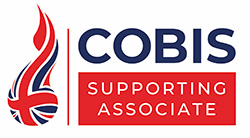Teaching Practical Life Skills to School Children
It’s important for kids to learn practical life skills as early as possible. The child who has life skills is going to be a child who has a happier life. Life skills gives a person the chance to succeed into the adult years. Usually it’s up to the parents or the teachers to teach children certain skill sets.
To help children learn certain skill sets, their age should be considered. This is because they developmentally need to be the right age to acquire this new skill. The main goal is to have a child who is more independent and confident as they leave home and begin their first year of school.
Children should be learning their sleep routines between ages 1 to 6. By aged six, children should have a consistent bedtime routine. Once children reach about 7 years old, they should be able to do this routine by themselves, and put themselves to bed. This also means being able to brush their teeth without adult supervision. According to Colgate, kids aren’t competent enough to brush their teeth effectively until aged eight.
At ages 1 to 6, children can also be introduced to swimming. Often many children have had swimming lessons by the age of 6. Children this age can learn everything from subversion under water and treading water, to confident swimming.
Preschoolers are able to learn how to measure and assemble ingredients. Once kids are aged 6 to 8, they can use small appliances on their own, such as the microwave, toaster, and can opener. They can also learn basic knife skills.
Once children enter school they should have already learned how to ride a bike, and had the training wheels removed.
At around the ages of six to eight years old children should learn to tie their own shoelaces. Even if your child wears Velcro shoe closures it is still a benefit for them to learn to tie shoelaces. It’s around these ages that children will have developed the motor skills to do so.
Children need to be over the age of 6 to learn how to manage money. A person is never too young to learn financial skills. This can involve paying for items in a store, balancing a checking book, and learning how credit works.
Older children from ages 8 to 12 can clean how to do their own laundry. This involves sorting the laundry and learning how to use the washing machine.
Children as young as age 6 can be taught how to use a map and how to get home on transit if they ever get lost. The age when they’re actually ready to take transit may depend on the child. Many children are fully capable of taking the subways when they’re nine years old.
No matter what life skills you plan on teaching kids in class, keep in mind that each child develops at a different pace. You may be surprised at how quickly they pick up these skills at an early age.














